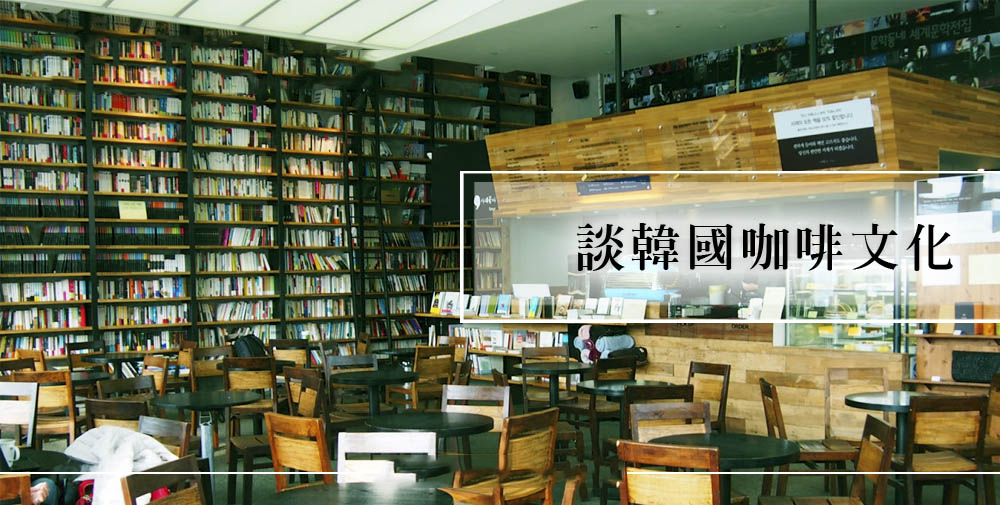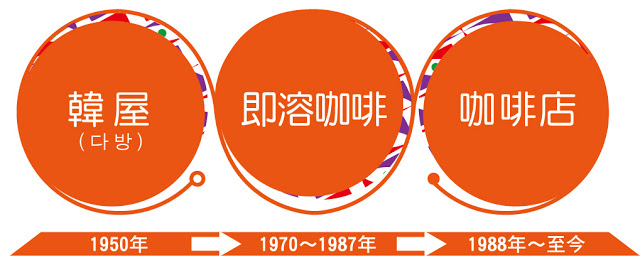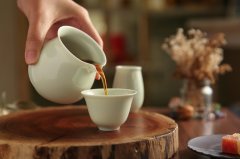In addition to fried chicken, beer and kimchi, South Korea has an unexpected coffee culture.

For professional baristas, please follow the coffee workshop (Wechat official account cafe_style)
If someone asks you what South Korea's global industry is, I think you will be the first to say that it is an iconic entertainment industry. After all, their achievements in the world are really eye-popping, as well as the electronics industry of well-known brands such as LG and Samsung.
But you never thought that they also have an amazing and mysterious industry-coffee culture.
Today, let's talk about Korean coffee culture. Coffee shops have sprung up so rapidly in Korea, perhaps because people are stressed, working long hours and living at a fast pace, so they need to drink coffee every day to refresh and refresh themselves. coffee shops have become the best place to replenish energy or rest. Korean drinks are the most authentic mugi-cha. The tea sold in the supermarket is small-packaged and disposable, as well as Huangbai tea and Xuanmi green tea, but the price is much higher than coffee. So maybe it's because of these reasons that coffee is so popular locally.
History over the years-
During the 1950 Korean War, → US troops stationed in ─ called the Korean house or teahouse the word "teahouse" in Korean means a teahouse or coffee shop.
Instant coffee from 1970s to 1990s in Korea
1988-Seoul Olympic Games held in South Korea-westernization led to the rise of → coffee shops in South Korea

Coffee culture in Korea-
When it comes to coffee categories, it is easy to think of Italian coffee, or American coffee with the invasion of American culture, but it does not seem easy to associate Asian countries with coffee culture. But their coffee shops are as convenient as convenience stores in Taiwan, and the number of coffee imported each year is the largest in Asia. Koreans really like to drink coffee. With the culture of Korean cafes in full bloom, the number of Korean chain and independent coffee shops has more than doubled from 12400 in 2011 to 49600 in 2015 (according to Korea Contents Media). On the streets of South Korea, you will see an endless stream of cafes, whether they are large chains, novel designs and dream-chasing, making this scene an alternative tourist attraction in South Korea. The prosperity of coffee shop culture is attributed to the government's support of people's livelihood industry, which makes all kinds of coffee shops refreshing on the streets of South Korea. It has also become an important element to jointly build and design the city.
In less than 20 years, South Korea has transformed from being on the brink of bankruptcy to a top country in Asia. And its benefits have long surpassed that of Asia, entering Europe and the United States through corporate brands and culture. Entertainment industry from packaging, design, culture and art, in this way of marketing to various countries, forming an invincible Korean culture.
Numbers and Korean coffee-
If drinking coffee is a Korean habit, then every cafe should be a place for Koreans to get together and chat. In Korea, the business opportunity for coffee is definitely beyond your imagination. According to Business Insider, coffee is worth more than US $100 billion in the world, equivalent to NT $3 trillion. Coffee ranks in the top 10 in commodity trade, ranking second only to crude oil, surpassing gold, silver, natural gas, corn, sugar, cotton and wheat.
You may not know that South Korea does not grow coffee trees at all, but the number of Starbucks in South Korea ranks sixth in the world, but it is also one of the countries that drink the most coffee in the world, ranking 13th in the world as coffee consumers. From production, technology, brand, access, market, culture, all in place. Asians already have the largest consumption of coffee in the world. Vietnam, Indonesia and India, which grow coffee, have ranked among the top five coffee exports in the world, on a par with Brazil and Colombia in South America.
The number of chain and independent coffee shops in Korea
2011-12400
2015-49600
-- has grown more than twice as much
(according to Korea Contents Media)
Chain store revenue
2008-2012-20% growth
2012-2014-8% growth
There are about 17000 coffee shops in Seoul, with ─ statistics from FindTheHome and FindTheCompany
That's about 17 for every 10,000 people.
Per capita ratio surpasses Seattle (15) and San Francisco (14.7)
Per capita consumption-23000 grams
United States-45000 grams
Korean coffee techniques-

South Korea has always used the method of brewing coffee by hand, and it still exists today. Incidentally, with the rise of Italian coffee in South Korea, sales of Italian coffee machines in Korea will exceed 10,000 units last year, and Italian high pressure and hand brewing are also the main ways of making coffee in South Korea at present.
There are many ways to make coffee, but these ways, only through hand brewing, are the best ways to drink the essence of coffee. Therefore, if you can make a high level of coffee, you must also be a barista who is very good at hand brewing. The promotion of boutique coffee in South Korea is also closely related to the international rise of Korean Italian coffee in recent years and the tradition of using hand-made coffee.
Finally, with the continuous promotion of Korean coffee culture, it has become an indispensable habit in people's life. "even fried chicken restaurants and bars are serving coffee, and espresso machines are being promoted in offices," said Lee Kyung-hee, head of consulting firm Korea Business Strategy Institute. "the coffee industry is fighting a war without borders."
Important Notice :
前街咖啡 FrontStreet Coffee has moved to new addredd:
FrontStreet Coffee Address: 315,Donghua East Road,GuangZhou
Tel:020 38364473
- Prev

People who like to drink black coffee are more likely to get mental illness?
Following Cafe (Wechat official account vdailycom) found that Beautiful Cafe opened a small shop of its own, If youve ever been on a coffee date with someone who chose black coffee over the typical indulgent caffeinated creation, you might want to take your latte and run. Apparently
- Next

The Taiwanese coffee we chased in those years
Professional baristas Please follow the Coffee Workshop (official Wechat account cafe_style) in recent years, high-density cafes and excellent coffee talents have made the world remember the name of Taiwan. Cup testing, baking beans, and coffee masters, including the World Cup brewing champion announced last month, have all landed in Taiwan. In fact, in addition to tea, Taiwan, which is located in the subtropics, is also the promised land of coffee.
Related
- How did the Salvadoran coffee industry develop in Central America?
- What exactly does the golden cup extraction of coffee mean?
- The Origin of Coffee flower
- [2023 Starbucks World Earth Day] there are more meaningful things besides free Starbucks coffee!
- What kind of coffee is there in Spain? 9 Flavors of Spanish Coffee
- Aromatic African coffee| Kenya's coffee culture and historical production area
- Liberica Coffee Bean knowledge: the characteristics of Liberian Coffee beans of the three original species of Coffee beans
- The origin and formula of Spanish latte introduces the taste characteristics of Bombon coffee in Valencia, Spain.
- How to adjust the solution of over-extracted coffee
- What is the tasting period of coffee beans? What is the period of coffee and beans? How should coffee wake up and raise beans?

